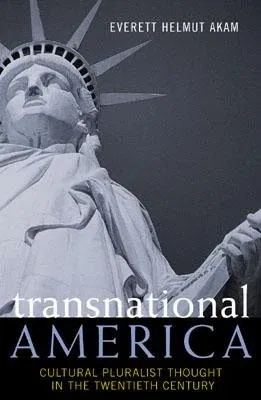Everett Helmut Akam
(Author)Transnational America: Cultural Pluralist Thought in the Twentieth CenturyPaperback, 20 August 2002

Qty
1
Turbo
Ships in 2 - 3 days
In Stock
Free Delivery
Cash on Delivery
15 Days
Free Returns
Secure Checkout

Part of Series
American Intellectual Culture
Part of Series
American Intellectual Culture (Paperback)
Print Length
240 pages
Language
English
Publisher
Rowman & Littlefield Publishers
Date Published
20 Aug 2002
ISBN-10
0742521982
ISBN-13
9780742521988
Description
Product Details
Author:
Book Format:
Paperback
Country of Origin:
US
Date Published:
20 August 2002
Dimensions:
23.16 x
15.09 x
1.37 cm
ISBN-10:
0742521982
ISBN-13:
9780742521988
Language:
English
Location:
Lanham, MD
Pages:
240
Publisher:
Weight:
322.05 gm